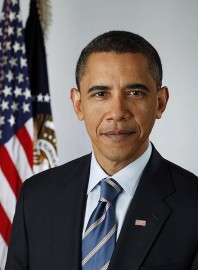
The newspapers and airwaves, having speculated and then reported on the outcome of the US election, are now speculating about what it means. The biggest significance will be for American domestic policy and race relations, which are really outside the topic of this blog, but the way he might change American foreign and macroeconomic policies certainly is of interest.
Obama’s first and most notable policy position was his opposition to the war in Iraq – think about how things might have run differently if Hillary Clinton had voted against it rather than in favour – but over time he has moderated his demands for a timetable for withdrawal, and the American military presence will surely continue there for longer than he had originally envisaged.
The troops withdrawn from Iraq will be redeployed to Afghanistan, where he wants to step up the war, and he expects his European Nato allies to send more troops themselves. He was also willing during the campaign to discuss publicly the idea of US military action in Pakistan, military action which has already started under George W Bush and will presumably continue. Not the sudden spread of world peace that some of his supporters envisaged.
Turning to the global economy, Obama has flirted with protectionism during primaries in rustbelt states, at the same time as briefing the Canadian government that he did not really mean it. Where the truth will lie, we do not know. In fact, he does not know, either. Economic conditions are changing so dramatically and so quickly that hardly any positions have remained untouched.
The need for an new international system for regulating finance is generally agreed, and there will be a summit in Washington DC on 15 November to discuss it. Given that the Americans are among those who have suffered most from the current crisis, they ought to have a strong interest in changing the global rules. But it would be a big and substantial act for the American government to spread the influence around: again, rhetoric is one thing, actions are another.
Irwin Stelzer sums up the problem nicely in the Daily Telegraph:
“The notion that the new president, having waged a long and hard fight to gain control of the commanding heights of the American economy, will surrender that territory to some international body strikes me as daft.”
Isn’t that true of every step in international integration, where the national governments are the ones who have to face the biggest changes?
